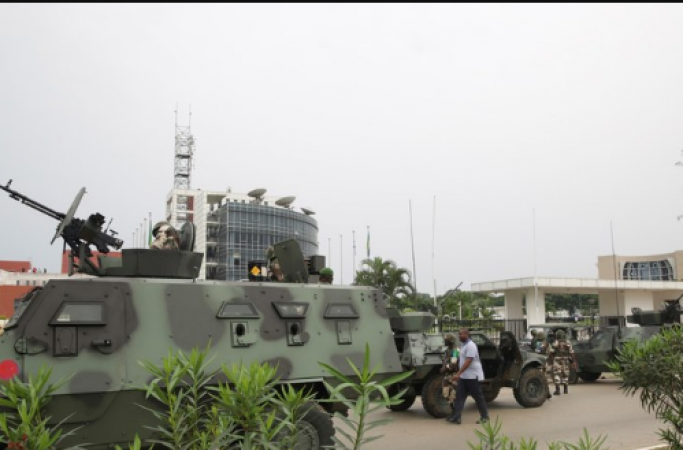
Gabon: In a surprising turn of events, military chiefs in Gabon have orchestrated a coup, seizing power in the oil-rich African country. This development marks the first coup in Gabon since 1964 and has significant implications for both its political stability and its crucial role in the global oil industry.
The coup was announced via state television by a group of military officers who claimed to be members of the Gabonese Armed Forces. They declared that their objective was to "restore order" and "fight corruption." While the coup leaders did not provide their names, they confirmed that they had apprehended President Ali Bongo Ondimba, placing him under house arrest. Alongside this move, the military suspended the constitution and dissolved the existing government, with promises of announcing a new government in the near future.
President Ali Bongo Ondimba has held power since 2009, succeeding his father, Omar Bongo, who had an enduring 42-year rule. However, Bongo has faced accusations of corruption, human rights abuses, and close ties to China during his tenure.
Also Read: Gang Member Caught Smuggling Migrants into UK Gets Jail Time
The coup carries significant repercussions for Gabon's economy, particularly its oil industry. As a member of the Organization of the Petroleum Exporting Countries (OPEC), Gabon produces around 200,000 barrels of oil daily. Although the coup leaders have assured that they will uphold existing oil contracts, the situation raises uncertainty about the stability of the nation's oil sector.
Furthermore, the political landscape in Gabon is poised for upheaval. The country was set to hold elections in 2023, but the coup has cast doubt on whether these elections will proceed as planned. This uncertainty raises concerns about the trajectory of democracy in Gabon and the potential erosion of the political process.
Also Read: Greece's Devastating Wildfire: A Calamity and Call to Address Climate Change
The coup's unfolding is a reminder of the tenuous political stability often observed in African nations. As the international community reacts to the events in Gabon, condemnation of the coup has been widespread, accompanied by calls for the release of President Bongo. Countries like the United States, France, and the African Union have all advocated for a swift return to democratic governance in Gabon.
From an economic perspective, Gabon's coup poses significant risks to global oil markets. The nation's production may face disruptions, amplifying volatility in oil prices. Additionally, the situation could trigger wider regional instability, impacting neighboring countries and potentially fueling a refugee crisis.
As the situation evolves, it is crucial to consider a multi-faceted approach to resolving the crisis. This includes international diplomacy aimed at encouraging a peaceful resolution, advocating for a return to democratic governance, and ensuring the protection of human rights.
For Gabonese citizens, the coup presents a challenging period of uncertainty. While the military leaders assert their intentions to "restore order," the abrupt upheaval raises concerns about potential violence, government repression, and the stifling of civil liberties.
In the broader context, the coup underscores the need for long-term efforts to foster political stability, good governance, and economic diversification in African countries. Addressing corruption, promoting inclusive governance, and investing in sustainable economic development can contribute to preventing such destabilizing events in the future.
Also Read: India's Chandrayaan-3 Rover Detects Sulfur, Other Elements on Moon
As the world watches Gabon navigate through this tumultuous period, the importance of international solidarity, respect for democratic principles, and collective efforts to support the country's citizens cannot be overstated. Ultimately, the path forward for Gabon hinges on a commitment to peaceful dialogue, the protection of human rights, and the restoration of democratic governance.